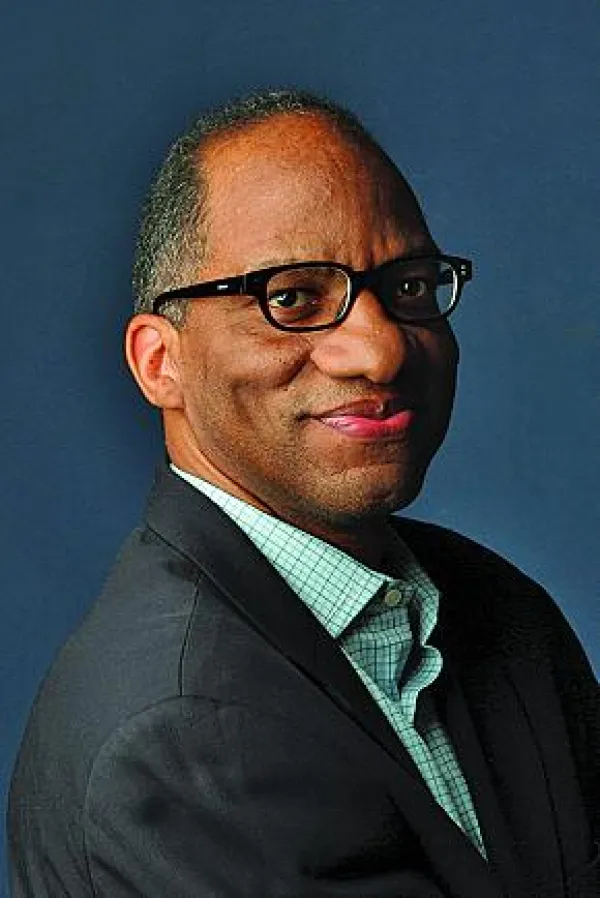Wil Haygood, as author of “The Butler: A Witness to History,” provided the inspiration for a movie that has informed America of key moments during political processes that enriched and strengthened many community and political actors.
“The Butler: A Witness to History” author, Washington Post reporter and Columbus native Wil Haygood will be the keynote speaker at this year’s Columbus Association of Black Journalists (CABJ)’s 25th anniversary celebration. Wil Haygood, whose grandparents are from Selma, Alabama, is a journalist and cultural historian. His success as a journalist has opened the door to key newsrooms and reporting sites around the world.
His thoughtful studies of iconic personalities Adam Clayton Powell, Jr., Sammy Davis, Jr., and Sugar Ray Robinson prepared him well for the gentle interrogation needed to unlock the wealth of information maintained by Eugene Allen, butler to U.S. presidents for 34 years. As author of “The Butler: A Witness to History,” Haygood provided the inspiration for a movie that has informed America of key moments during political processes that enriched and strengthened many community and political actors.
For the past 25 years, the Columbus Association of Black Journalists (CABJ) has been dedicated to the support, recognition and professional advancement of African Americans in the news industry. On November 2, 2013 CABJ marks its 25th anniversary with the “Salute to Black Communicators 25th Anniversary Celebration,” celebrating the rich history and significant accomplishments of the Black journalists movement.
African American journalists who were veterans of the tumultuous 60s and early 70s, the Black Liberation Movement, the anti-war and the women’s movements, found themselves in Little Rock, Arkansas, in March 1974 to report on the National Black Political Convention, a coming together of people who believed that it was possible to break with the Democratic Party and form a new political organization capable of bringing "community control" to Black neighborhoods.
Given the recent influx of Black elected officials throughout the country, the need to ensure strong influence within the Democratic Party or lead a disciplined break away for a third party was a primary concern. But for the journalists, their presence there led them to question their ability to accurately report on this and similar stories without a strong African American presence within newsrooms throughout the mainstream media outlets.
Discussions begun here led to the formal establishment of the National Association of Black Journalists (NABJ) in December, 1975 in Washington, D.C. Over the next decade, a period when there existed only three schools of journalism among the Historically Black Colleges and Universities (HBCU), chapters were created in major cities through the United States and in 1978 a chapter was formed in Columbus for working journalists.
Felix Hoover and Ann B. Walker, two of the honorees for the November 2nd banquet, among others, had encountered resistance from many of the area’s professionals who did not see the need for a separate organization for working journalists. So it began small and grew steadily, often experiencing periods of dormancy when the membership was less focused in meeting the objectives of the national organization.
As an affiliate of the NABJ, CABJ was re-established in 1988 for journalists and other media specialists who are “dedicated to truth and excellence in the news and full equality in the industry.” As a professional services organization, the focus has historically been to address institutional racism through professional ties within the industry; recruitment, training and retention of new professionals through scholarship and intern programs; and to expand accurate coverage of the African-American community.
CABJ 25th anniversary with the “Salute to Black Communicators 25th Anniversary Celebration”
Saturday, November 2, 2013
Hilton Columbus at Easton
3900 Chargin Drive, Columbus, Ohio 43219
Reception 5:30 p.m. Program 6:30 p.m.
Member Ticket: $55; Non-Members Ticket $65
http://columbusabj.org/category/featured/
Proceeds from the banquet will support the book scholarship that is offered each year to a student in the media/communications field.



